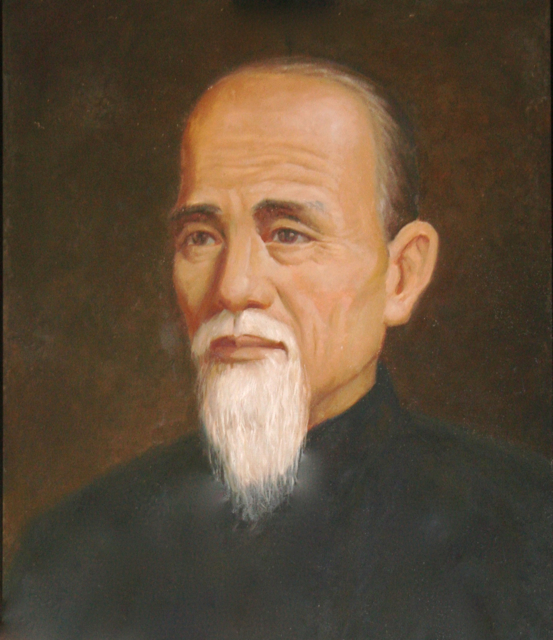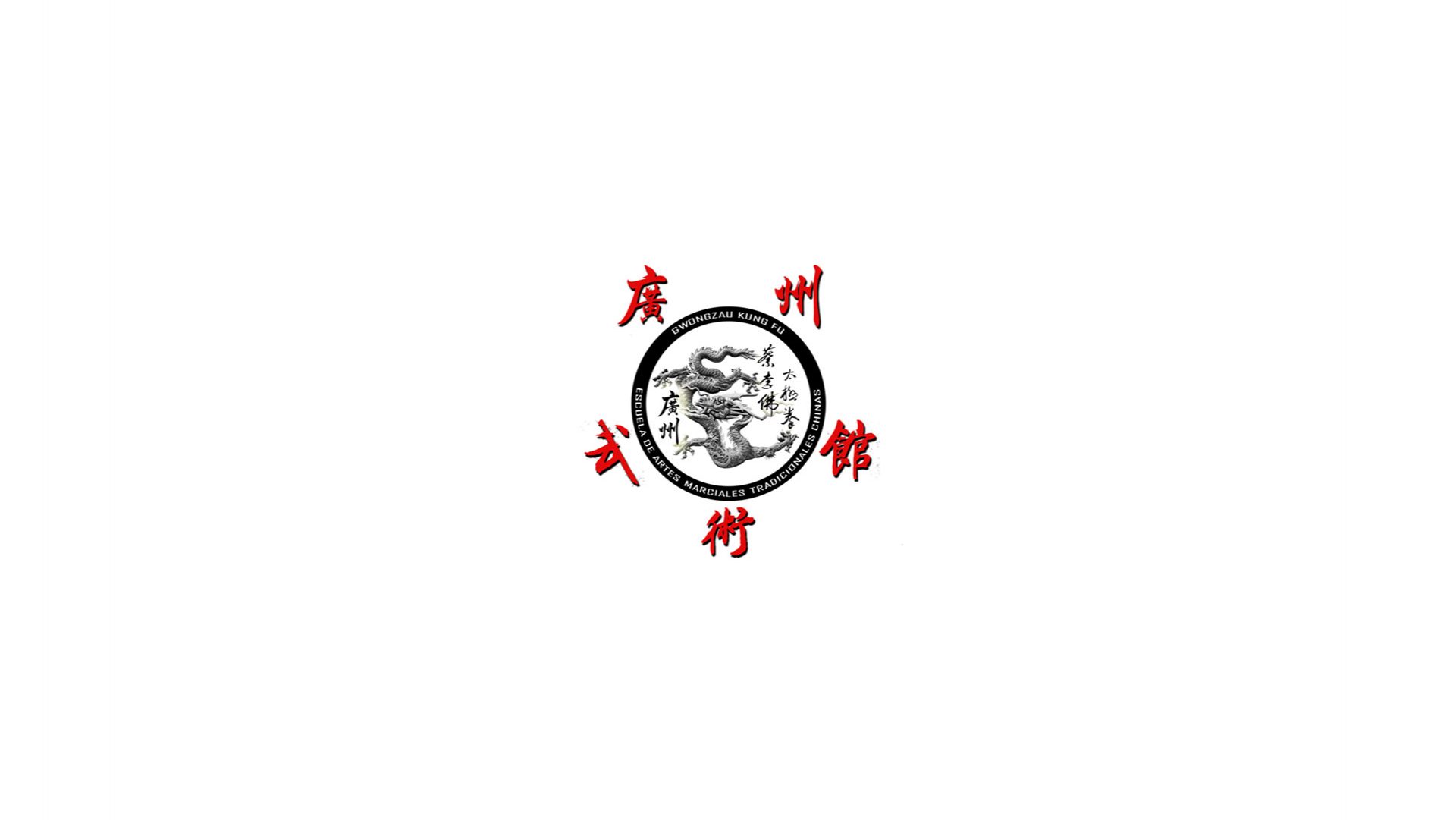When Chan Heung 陳享 founded the Choy Li Fut 蔡李佛 system, he also established ten rules of conduct to guide all practitioners of the style. These rules constitute the code of conduct (武德, wǔ dé/mou dak)* of Choy Li Fut. The ten rules are the following:

Portrait of Chan Heung, founder of Choy Li Fut.
1. Practice Choy Li Fut daily and do not abandon your path without reason.
The first part of this rule tells us that we should practice every day. The Choy Li Fut is a very broad system and difficult to master, requiring daily training throughout life.
The second part prohibits us from leaving the practice without a good reason. Once we enter the road, it is our duty to travel it to be able to transmit it one day, so that this knowledge is not lost.
2. You must practice not only to improve your skills and your body, but also to develop a good and patient heart.
The practice of Kung Fu teaches us to persevere, to be constant, to overcome difficulties and to be patient. Today our society encourages us to seek immediate rewards, making us capricious, and wanting to get everything already. In Kung Fu, the reward for daily effort comes in the long term, since it requires a long time of improvement to be able to execute the techniques correctly and effectively. This makes us more patient and calms our mind, freeing ourselves from desire and, consequently, developing a good heart. This is the most important reason why we should practice.
3. Never use your skills to commit injustice or harm others.
A martial artist can have great power, but he has an even greater responsibility. We do not learn Kung Fu to impose ourselves on others, but to be better people and enjoy the practice. Chan Heung spent several years studying Buddhism with Choy Fok 蔡褔 before he taught him Kung Fu. Choy Fok was a monk of Northern Shàolín 少林, and this norm was a basic principle among the monks of the monastery.
As a popular saying goes: "a true warrior does not fight because he hates what there is in front of him, but because he loves what there is behind him". When the need arises, our objective should not be to defeat those in front of us, but to defend those behind us.
4. You must show the greatest respect to your teachers and older brothers.
A teacher is someone who dedicates his time and effort to our benefit; we should be grateful and always treat him with affection and respect. The same applies to our older brothers in the school, who are also teaching us with their example and dedication.
5. Show respect to your classmates through trust, friendship and honesty. Do not intimidate or threaten them in any way.
Chan Heung extends what was said in the previous norm to all the companions of the school, to our "younger brothers". Not because we have a higher level of Kung Fu we are above anyone else. Friendship, trust and honesty are the principles by which we must govern relationships with our colleagues.
6. You must not fight with your Choy Li Fut brothers. To avoid this, in times of need, we use the tiger's claw as the distinctive sign that we practice Choy Li Fut.
In the 19th century China was a troubled country and situations of conflict were common. Chan Heung wanted that in the middle of a pitched battle, the practitioners of Choy Li Fut could recognize each other, and he established some characteristic sounds of the system, so that a fighter, upon hearing them, knew that a practitioner of Choy Li Fut was fighting nearby. In this norm, Chan Heung, although he names the tiger's claw, is not referring to the technique as such, since other Kung Fu systems also use it, but to the sound that is made when executing it.
Of these sounds established for the Choy Li Fut, the most characteristic are: wat 挖, when striking with the tiger claw, which is referred to in this rule; tek 踢, when kicking; jik 抑, when hitting with the fist or palm.
7. Do not drink alcohol or eat meat in excessive amounts. Alcohol weakens self-control and meat slows down the body. The two things in excess can damage your body and your spirit.
We always say that self-control is one of the characteristics that distinguish a good martial artist. Alcohol clouds our consciousness and weakens this self-control, so it should not be taken to such an extent. As we have said before, a great power carries a great responsibility. If we know we have that power, we should not get drunk and risking losing control. You do not have control when you are drunk, but you have control over what you drink and, therefore, you have to be fully responsible for your actions.
Excessive consumption of meat slows down the metabolism, causing more energy to be consumed in digestion. In the China of the Qīng 清 Dynasty, one must always be ready for combat.
8. When you practice, do not show your skills to others without consideration, as it can cause problems to you and to others. If you consider that someone is a good person, then you can pass on your knowledge.
Formerly, in China, almost everyone had some kind of martial training. A martial artist of great skill could come to learn a style only through observation. Such was the case of Yáng Lùchán 楊露禪, the founder of the Yáng style of Tài Jí Quán 楊氏太極拳, when he served at the home of the Chén 陳 family; and also of Jeong Yim 張炎, who was able to imitate with great skill the techniques that Chan Heung himself taught to his relatives in King Mui 京梅, in the days when the style was not taught outside the family itself.
This is one of the reasons why Chan Heung established this rule, so that strangers could not copy the techniques of the style and it would not fall into the wrong hands. However, if we judge that a person has a noble and sincere heart, Chan Heung allows us to teach him Choy Li Fut.
The other reason for this rule is, as it is explained, that "it can cause problems to you and to others". When you show your skill, there will always be people who want to be above and prove more skilful. This can lead to unnecessary confrontations and should be avoided. We do not practice Choy Li Fut to make public exhibition and feed our ego.
9. Never misuse your abilities over others or place yourself above them, because this only causes problems. Practice to build a solid foundation for your body. Practice daily and do not abandon the path.
This norm has a lot to do with the previous ones: not using Kung Fu to hurt, and not pretending to be above anyone else.
10. All these are norms that the founder wishes us to follow; to do the opposite is to go against his wishes. If you cannot abide by these rules, you can leave or, if you break them, it is up to your teacher to decide your place in the school.
Everything we know and everything our teacher teaches us, we owe to Chan Heung as a founding master. Therefore, it is fair that we follow these rules in accordance with his wishes, not only by our own conviction, but also as a way to show gratitude and respect towards his person.
Notes:
* Wǔ dé in Mandarin; mou dak in Cantonese: literally, "martial ethics".
